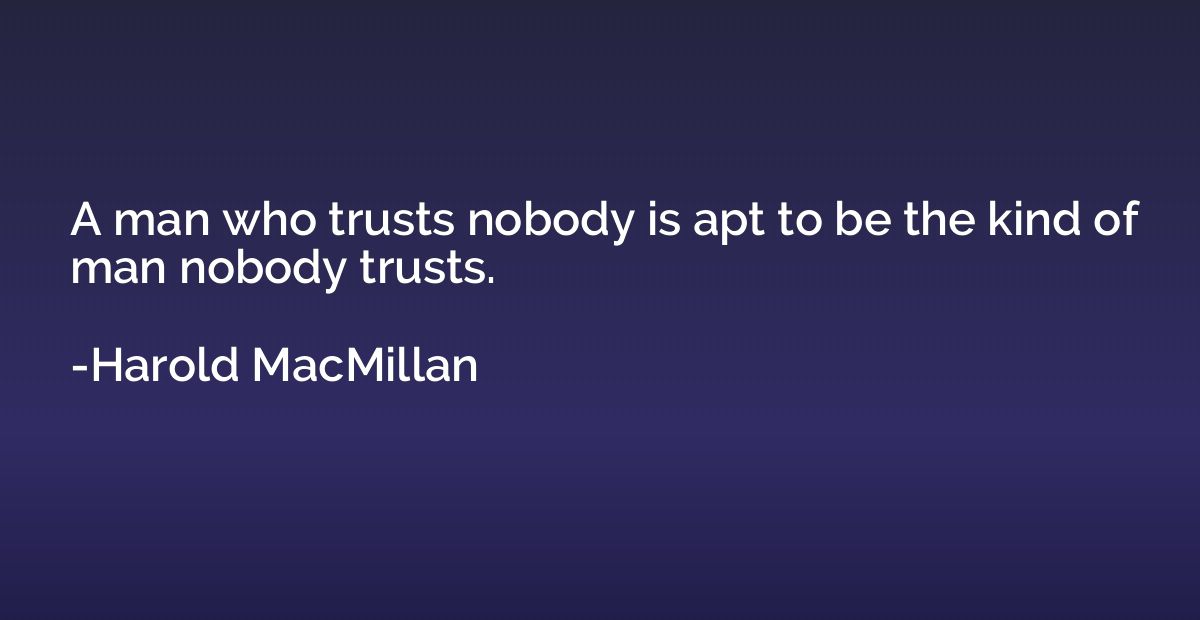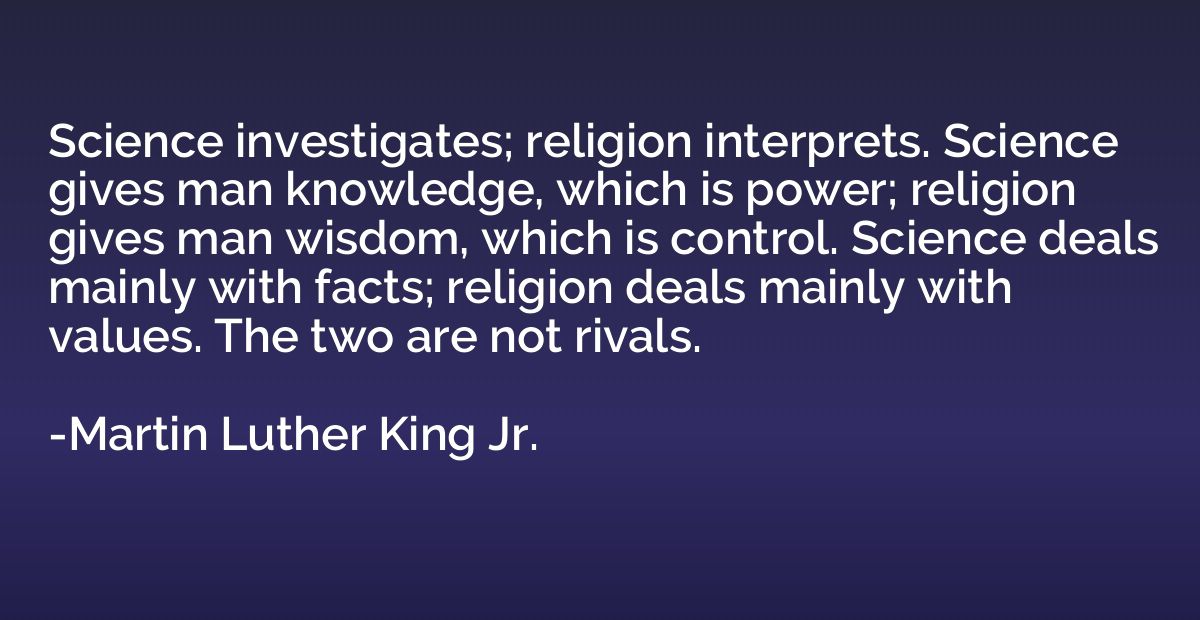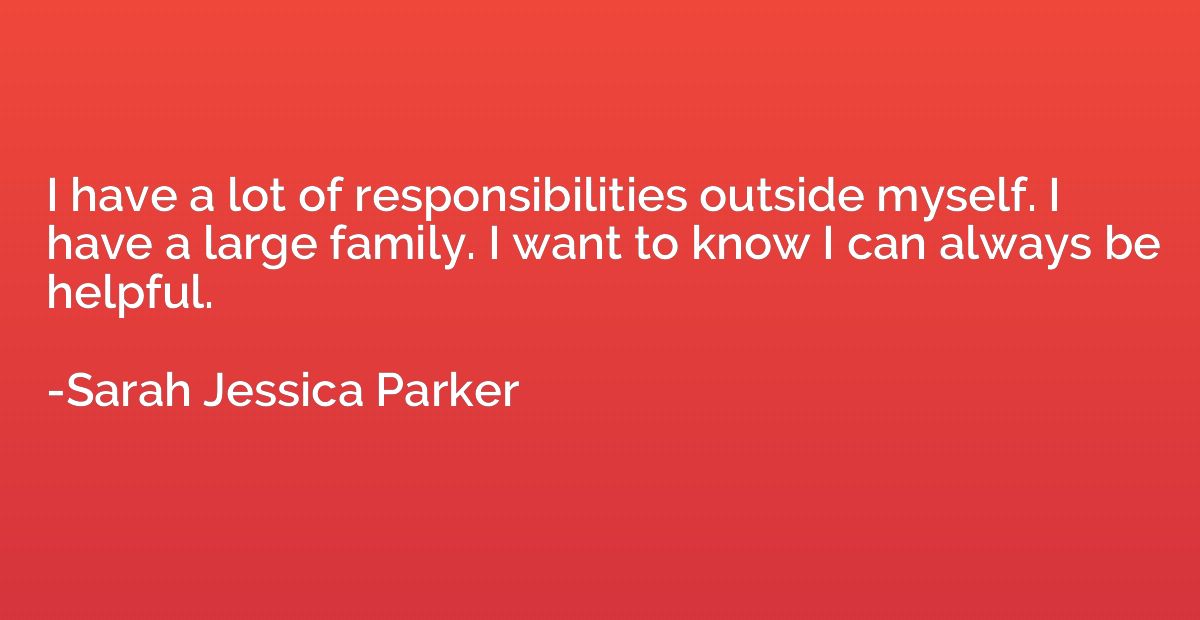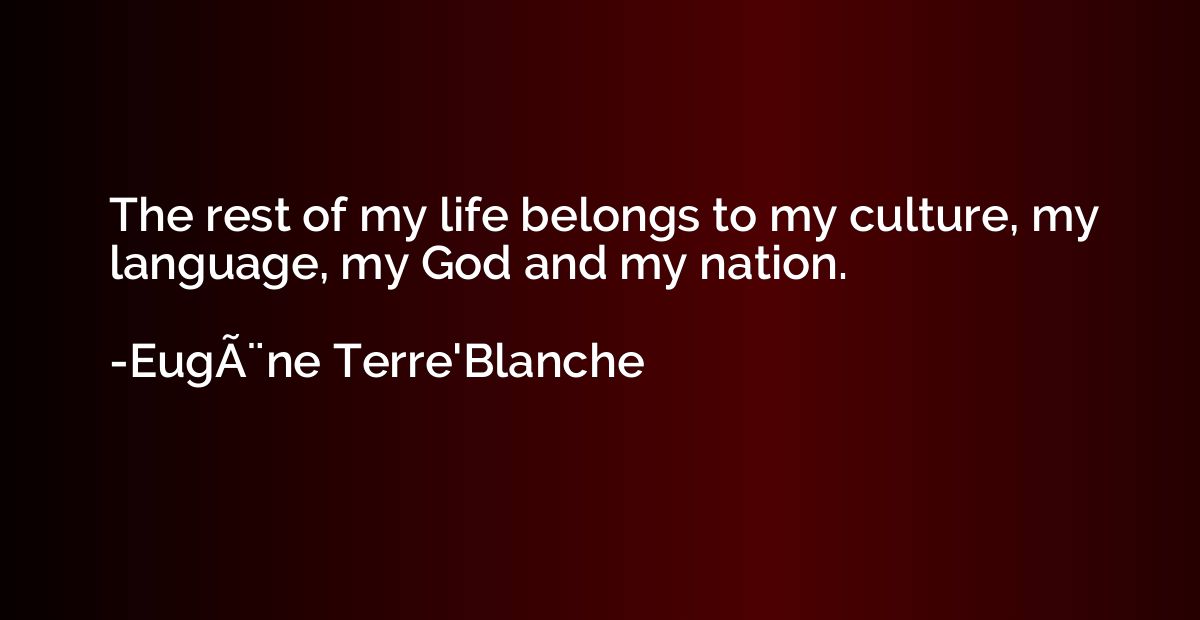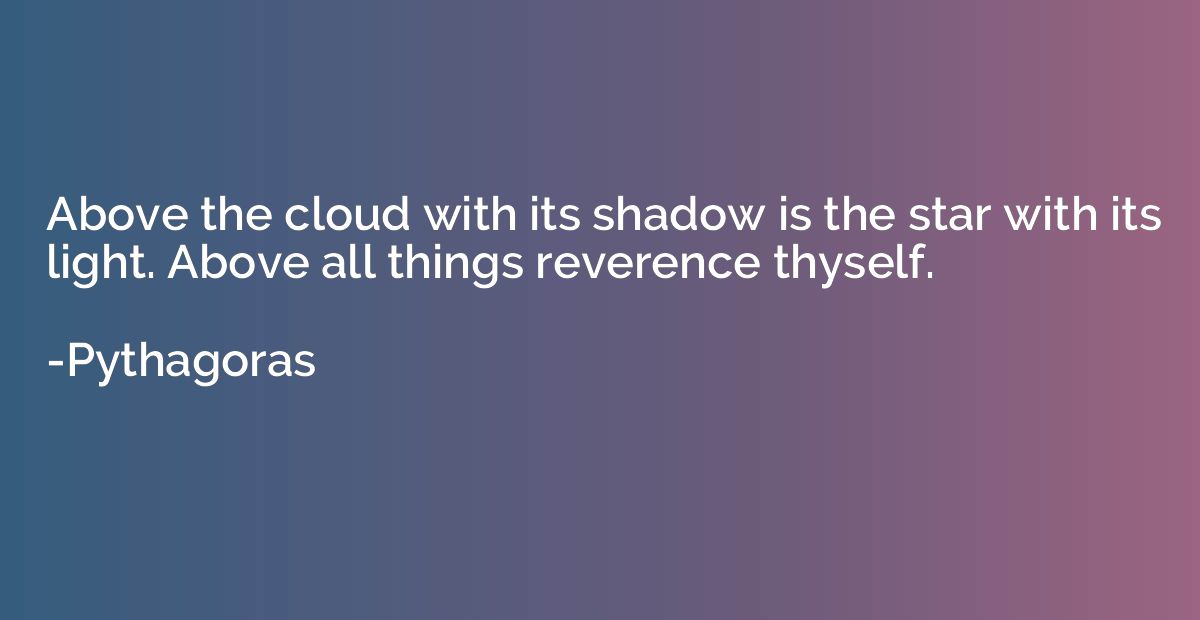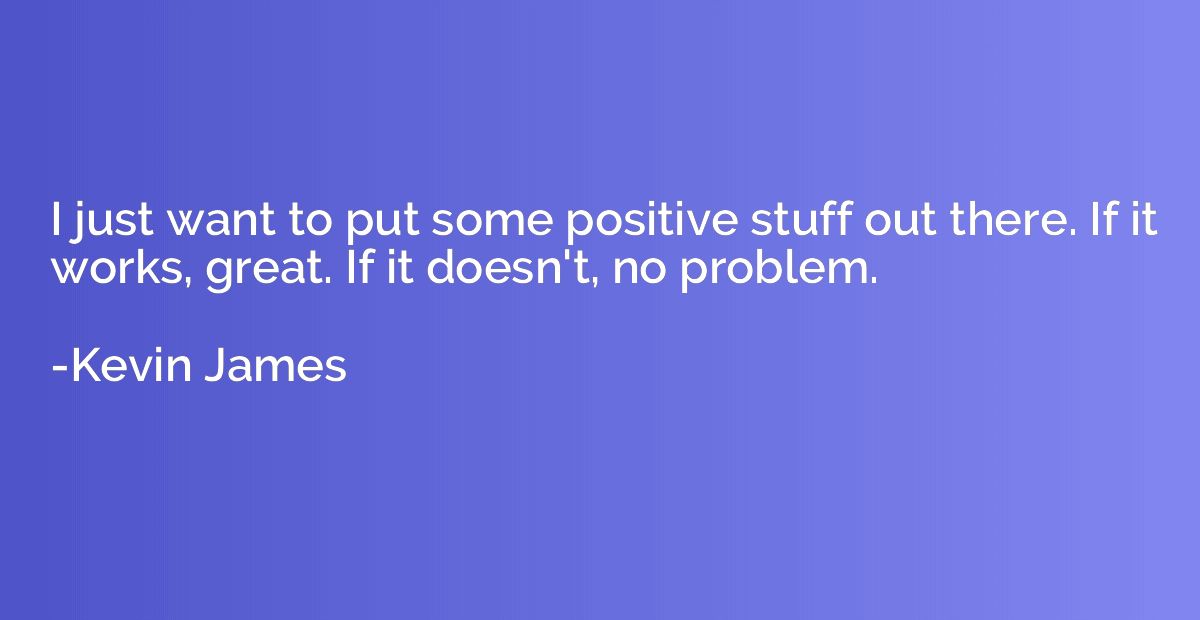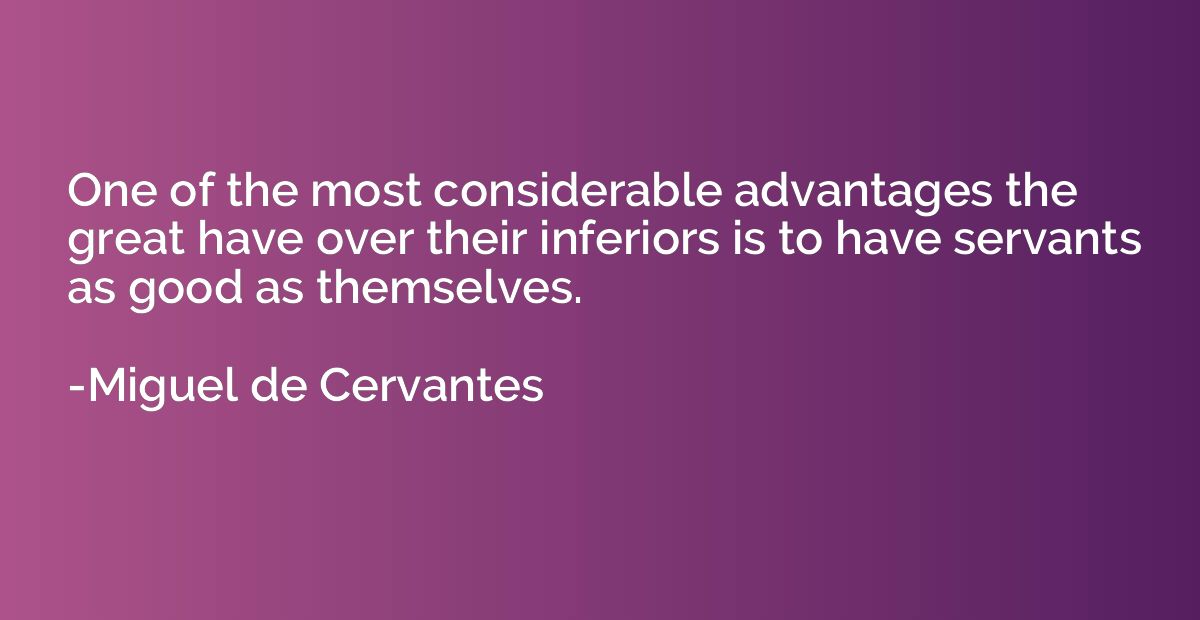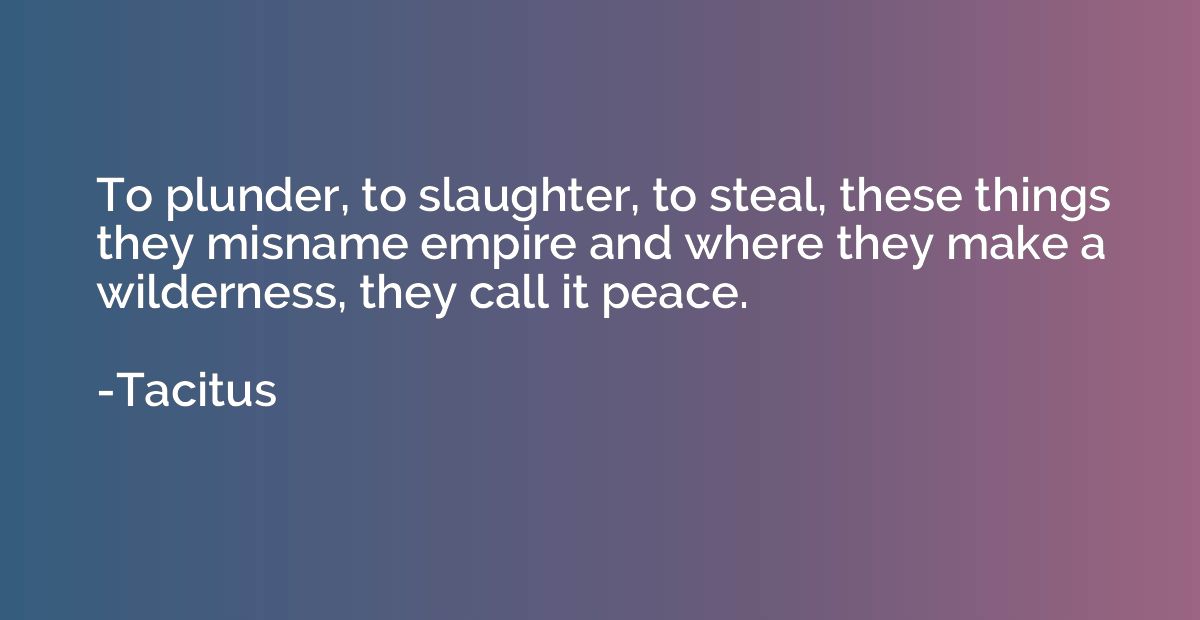Quote by William Shakespeare
There is tide in the affairs of men, which, taken at the flood, leads on to fortune; omitted, all the voyage of their life is bound in shallows and in miseries; on such a full sea we are now afloat; and we must take the current the clouds folding and unfolding beyond the horizon. when it serves, or lose our ventures.
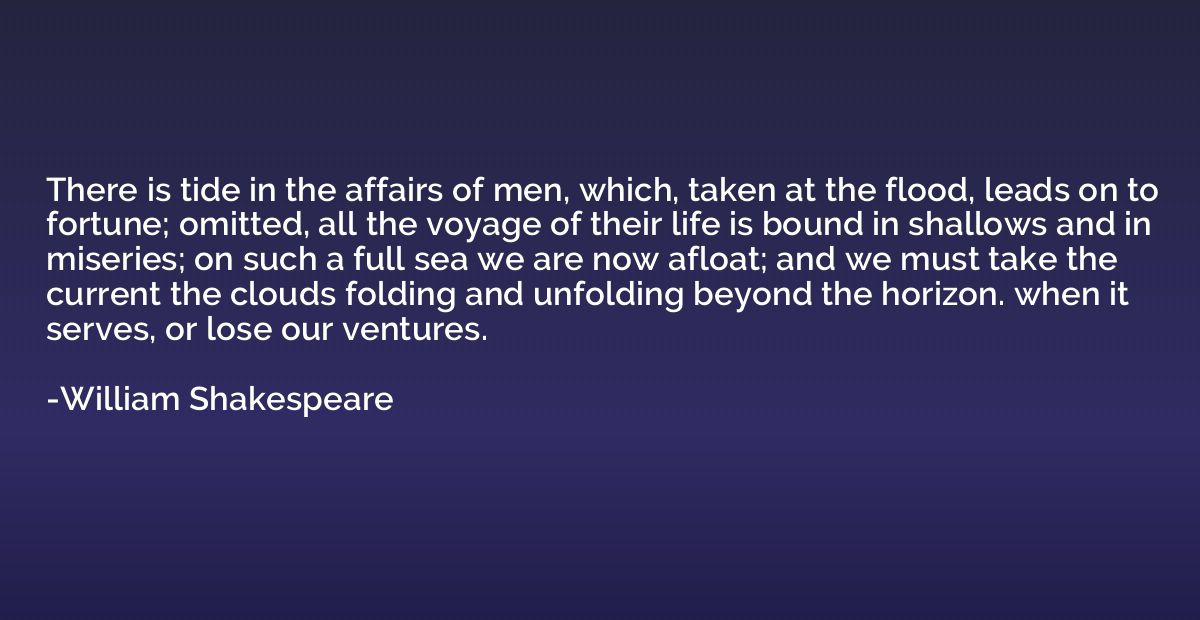
Summary
This quote suggests that in life, there are moments of opportunity ("tide in the affairs of men") that can lead to success and fortune if seized at the right time. If these opportunities are missed or ignored, one's entire life becomes confined to a shallow existence filled with unhappiness and misfortunes. Currently, we find ourselves in a time of great potential ("on such a full sea we are now afloat"), and it is crucial to take advantage of the favorable circumstances ("current") that arise. Failing to do so may result in losing out on valuable opportunities or ventures.



